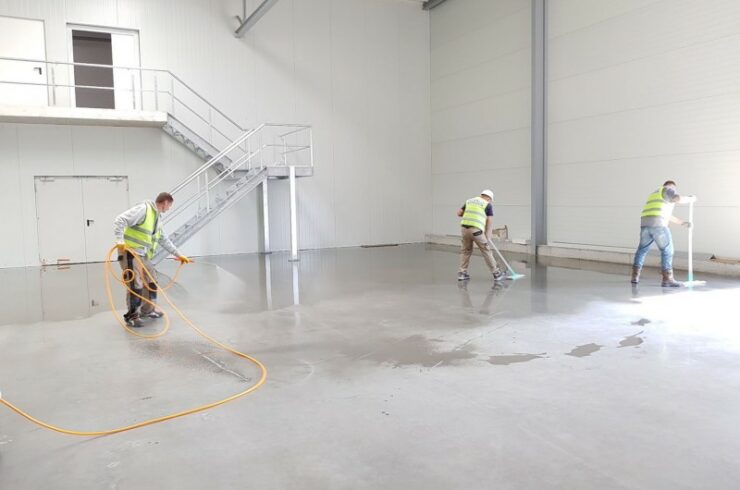Some of the most lucrative business ideas in 2022 are things like selling products through Amazon, drop-shipping, freelancing, and other web-based ideas — but what if you are more interested in a physical job like cleaning? Is it possible to start a cleaning business on a tight budget?
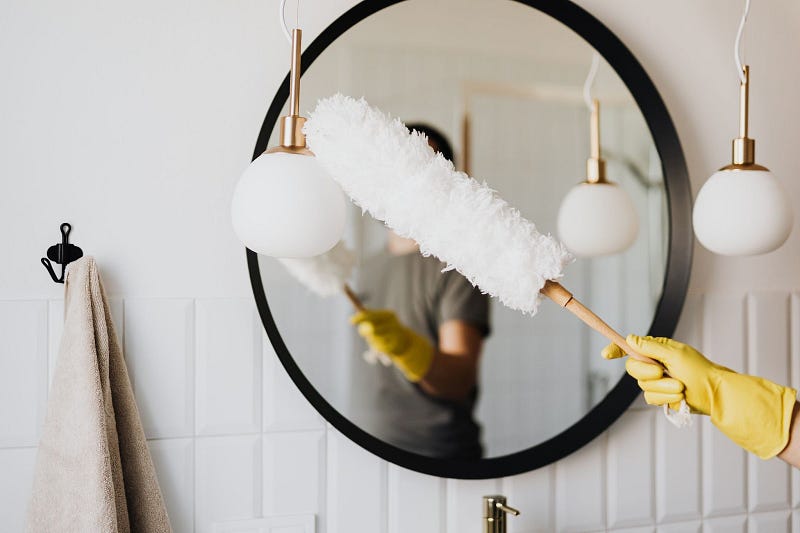
Yes, it is possible! You may not have the most high-tech or glamorous business, but that doesn’t mean you can’t be successful. In fact, many people start businesses with very little money and grow them into multimillion-dollar companies. So what do you need to do to get started?
In this article, we will discuss some tips for starting a cleaning business on a budget to help you get going. Let’s dive in!
What it costs to start a cleaning business
Depending on the size and scope of your business, there are a few different things you’ll need to get started. Here’s a breakdown of what you can expect to spend:
- A business license: usually around $50
- Insurance: this will vary depending on the coverage you choose, but expect to pay at least several hundred dollars a year
- Advertising and marketing: this will also depend on how you plan to market your business, but could cost anywhere from a few hundred to a few thousand dollars
- Equipment: depending on the type of cleaning services you offer, you may need various supplies and equipment which could cost up to a few thousand dollars

As you can see, the start-up costs for a cleaning business vary widely. How much you’ll need to spend will depend on the size and scope of your business, as well as your marketing and advertising plans.
However, the amount you end up spending in total depends greatly on your ability to budget and cut costs where possible — and there are plenty of ways to do so!
How to be a savvy business starter
When starting your cleaning business, the upfront costs may seem overwhelming. You’ll probably receive conflicting advice about how to advertise, how much you should spend on products, and how to find the right employees. But if you’re a savvy business starter, you can minimize your costs and get your new business off the ground.
The following tips will help you launch your cleaning business on a shoestring budget:
1. Research your competition.
Before investing in advertising or purchasing products, you should always conduct research on your competition. Otherwise, how will you know what services to offer, what prices to charge, or how to market your business?
Take the time to study your competition and figure out what makes them successful. Try to find out the following details:
- What cleaning services do they offer?
- How much do they charge for different types of cleaning?
- What kind of marketing strategies do they use?
- What type of customer base do they have? (Homeowners, businesses, facilities?)
Once you have this information, you can begin to create a plan that will help you stand out from the competition and attract customers.
This strategy saves you money in the long run and allows you to allocate your resources in a more effective way, as you will have a better understanding of what works and what doesn’t.
How to conduct research on your competition
There are a few different ways that you can research your competition:
- Online search engines: A great way to start is by conducting a simple online search for “cleaning services” or the name of your city + “cleaning services.” This will give you a list of businesses in your area that offer cleaning services.
- Social media: You can also check out your competition on social media. Platforms like Facebook and Instagram are a great way to see what services they offer, what prices they charge, and what kind of customer base they have.
- Industry directories: Another great resource for researching your competition is industry directories. These directories contain information on a variety of businesses in different industries.
- Local business associations: If you want to get even more information about your competition, you can contact local business associations. These organizations often have directories of member businesses that include detailed information on the services they offer.

Whichever way you choose to conduct your research, avoid paying for research tools. These can cost a fair amount of money that you realistically don’t need to spend; researching on your own is more than doable, and it’s completely free!
2. Use social media.
Social media is a cost-effective way to market your cleaning business, as it is far less expensive than traditional advertising methods. Marketing agencies can cost around $4000 per month, but social media marketing requires only a small amount of your time each day — so it’s difficult to justify the high price tag.
Instead, use free social media platforms such as Facebook, Twitter, and LinkedIn to create profiles for your business and share information about your services. You can also use hashtags to make your content more visible to potential customers.
To make your social media accounts stand out against the competition, here are a few tips:
- Use high-quality images and videos
- Write interesting and engaging content
- Create a strong branding strategy
- Respond to comments and questions promptly
- Use SEO keywords in your posts
Plus, if you share your profiles to your own personal accounts, family and friends will see your business and hopefully share it with their own network of connections.
3. Invest in quality products.
It’s tempting to purchase the cheapest cleaning products available, but this can be counterproductive in the long run, as cheaper products often contain more harsh chemicals and less effective ingredients. They are also more likely to break on you while you’re using them.
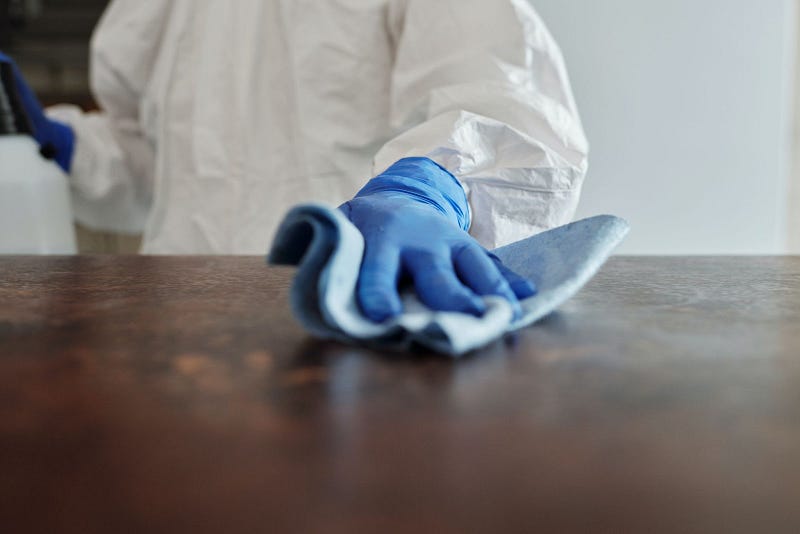
While it may feel more cost-effective upfront, buying highly breakable cleaning tools ends up costing you more over time. All of those repurchases begin to stack up, which can be overwhelming — and the combined cost can amount to more than the price of good quality products anyway.
4. Negotiate with suppliers.
When you’re starting a business, it’s important to negotiate the best possible prices from your suppliers. You’d be surprised at how much you can save by simply asking for a discount. In many cases, suppliers are happy to offer a discount to help new businesses get started.
Negotiating can be daunting at first, but remember that suppliers are just people too. Start by introducing yourself and explaining that you’re starting a new business. Let them know what you’re looking for and see if they can help. Most suppliers will be happy to work with you, especially if you’re willing to commit to a long-term relationship.
5. Hire part-time employees.
Your business structure is another component that can either make or break the bank, especially when you are first starting out with a shoestring budget. You might be tempted to hire full-time employees and offer them benefits, but this can be prohibitively expensive.
Instead, consider hiring part-time employees to keep your costs down while still allowing you to scale your business. You can look for part-time employees using online resources or word of mouth. Just be sure to screen candidates thoroughly and conduct reference checks before making an offer.
Alternatively, you could outsource some of your cleaning work to a third-party company. This can be a great option if you don’t have the manpower or resources to do all the cleaning yourself. Just make sure you research and vet any outsourcing companies thoroughly before signing on the dotted line!
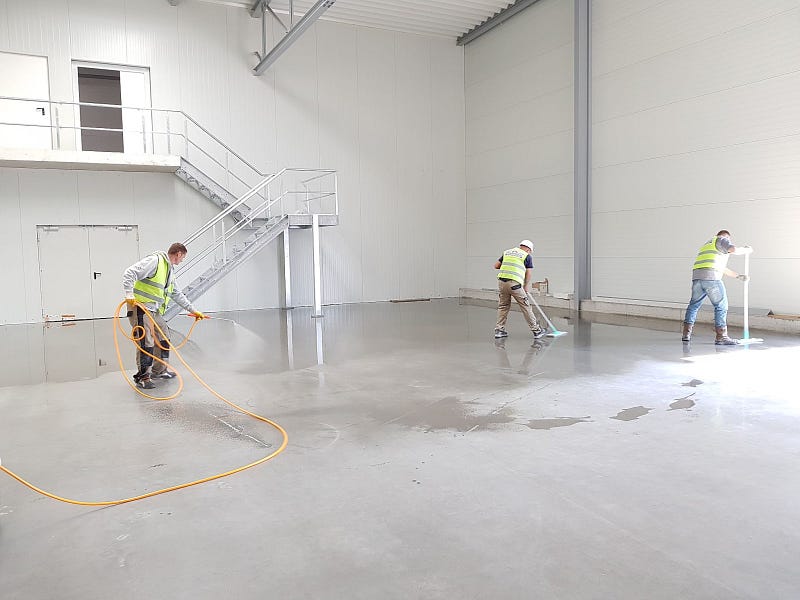
6. Use your personal resources.
Don’t be afraid to use your personal resources to help launch your cleaning business. Ask your family and friends for help with advertising, product procurement, and hiring employees — after all, you’d do the same for them if they decided to start their own business.
Once you start looking at your own life, you’ll likely see that there are a wealth of resources at your disposal (completely free of charge!)
Ask yourself the following questions:
- Who are the people in my life who have expressed an interest in helping me succeed?
- What kind of skills and resources do they have that could be helpful to me?
- What have I learned in my own life and studies that could be helpful in this venture?
- Does my local council or government offer any free or subsidized business advice or training courses?
- Are there any free or low-cost e-books/podcasts/websites I can use to educate myself about starting and running a cleaning business?
Even if you live away from friends and family, you may be surprised to learn how much people can help from a distance — and how much you yourself have to offer already!
Hot to start a cleaning business: final thoughts
Starting a business from scratch isn’t easy for anyone, let alone for those who are on a tight budget. The cost of licenses and advertising alone is enough to set most people back, not to mention the cost of materials and employee wages.
However, there are a few ways that you can start a cleaning business on a shoestring budget without compromising on quality or service. Remember to:
- Research competitors,
- Utilize social platforms,
- Invest into products that will last,
- Negotiate wherever possible,
- Start with part-time employees, and
- Use the resources in front of you.
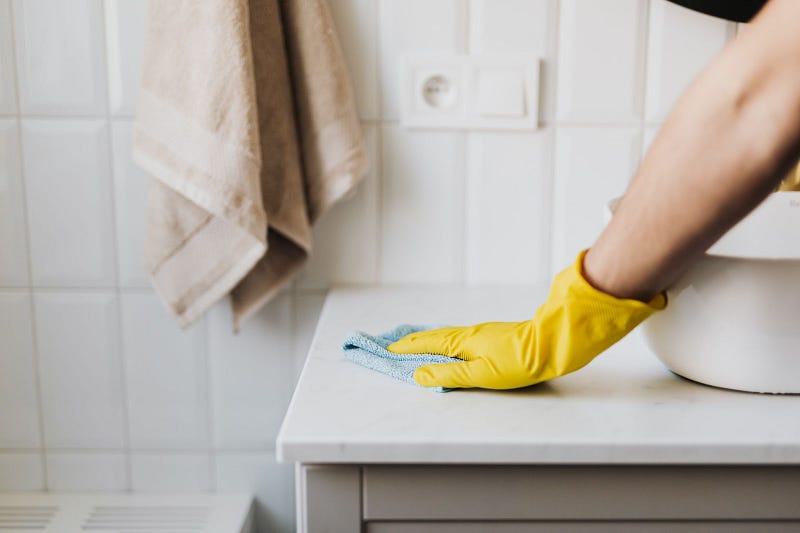
If you’re creative and resourceful, it’s definitely doable. Just make sure to put in the hard work and stay focused on your goals, and you’ll be well on your way to starting a successful cleaning business!
